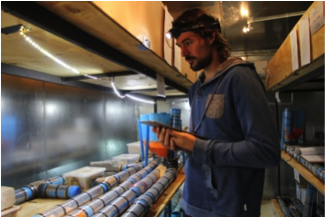 Website: http://www.zoo.cam.ac.uk/directory/philippe-vullioud
Website: http://www.zoo.cam.ac.uk/directory/philippe-vullioud
Contact: philippe.vullioud@gmail.com
Socio-endocrine mechanisms of individual variation in cooperative behaviours
Large differences in cooperative effort are a universal characteristic of cooperative societies. There is growing evidence suggesting that individuals can adjust their cooperative investment as a function of its costs and benefits, yet the physiological causes and evolutionary consequences of this variation remain largely unknown. Unravelling the mechanisms of cooperative investments’ plasticity, both within and between individuals, is essential to develop a more comprehensive understanding of how cooperation works in nature. Steroid hormones such as the glucocorticoid stress hormones and androgens (testosterone) may be pivotal for individuals to adjust their level of cooperation as a consequence of their secretions’ combined ability to integrate internal and social cues and exert profound phenotypical effects, including developmental ones. These can occur as early as conception and have been highlighted to mediate early-life environment’s long-term and irreversible consequences on offspring phenotypes. However, the exciting possibility that cooperative phenotypes may be programmed prenatally has remained untested. My research on the Damaraland mole-rat combines correlative and experimental approaches, in which pregnant females and helpers’ endocrine system or social environment are manipulated, to investigate the short and long-term effects of steroid hormones in shaping individual phenotypes as a function of perceived social environment. Furthermore, the pleiotropic effects of steroids make them ideal candidates to question the existence and mechanisms of potential life history trade-offs in which cooperative investments would be constrained by investment in competing phenotypical traits. I hope that my research will promote a more integrative view of cooperation which I believe has the potential to reveal major insights into the adaptive character of individual variation in cooperative behaviour.

